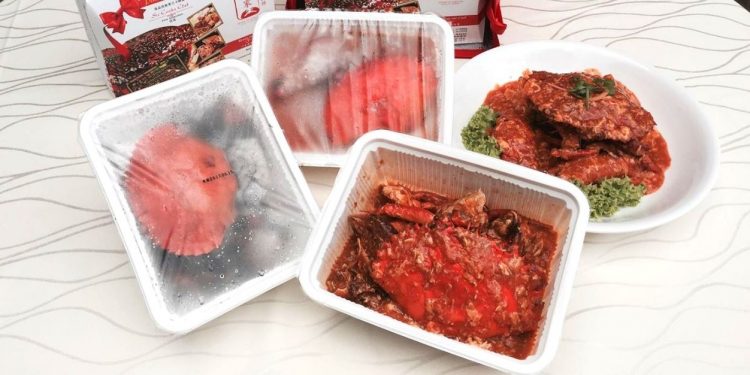It’s 2005. You’re sitting in Clinic E of National University Hospital (NUH) waiting to be called in to see a doctor you were supposed to have seen about an hour ago. Lunchtime is creeping upon you, and your hurried breakfast long past – the growl in your stomach reminds you that the need for sustenance is overdue. With no other options, you turn to the single possible solution: a vending machine.
Unlike most others, this one promises you the choice of a hot beverage apart from the typical vending machine fare of cold canned and bottled drinks. With some apprehension, you slot in a dollar coin before hesitantly thumbing the red “coffee, hot” button. The return of two twenty-cent coins confirms your order. A click, and long whirr later, you have nestled in your palms, a slightly-hotter-than-lukewarm cup in your hands, which could easily pass for scalding in the cold waiting room. After a minute appreciating the newly found heat, you take your first sip… and it’s instantly clear why this waiting room ‘saviour’ cost a mere sixty cents. The writer cannot verify this to be her own experience.
Seriously, what can you expect from a vending machine? Certainly not a cut of wagyu beef. And definitely not slices of raw Norwegian salmon. It would be absurd to even think of a delicacy such as chilli crab squeezing out of the little trapdoor built into the front of this glorified refrigerator.
Except, that is all possible today.
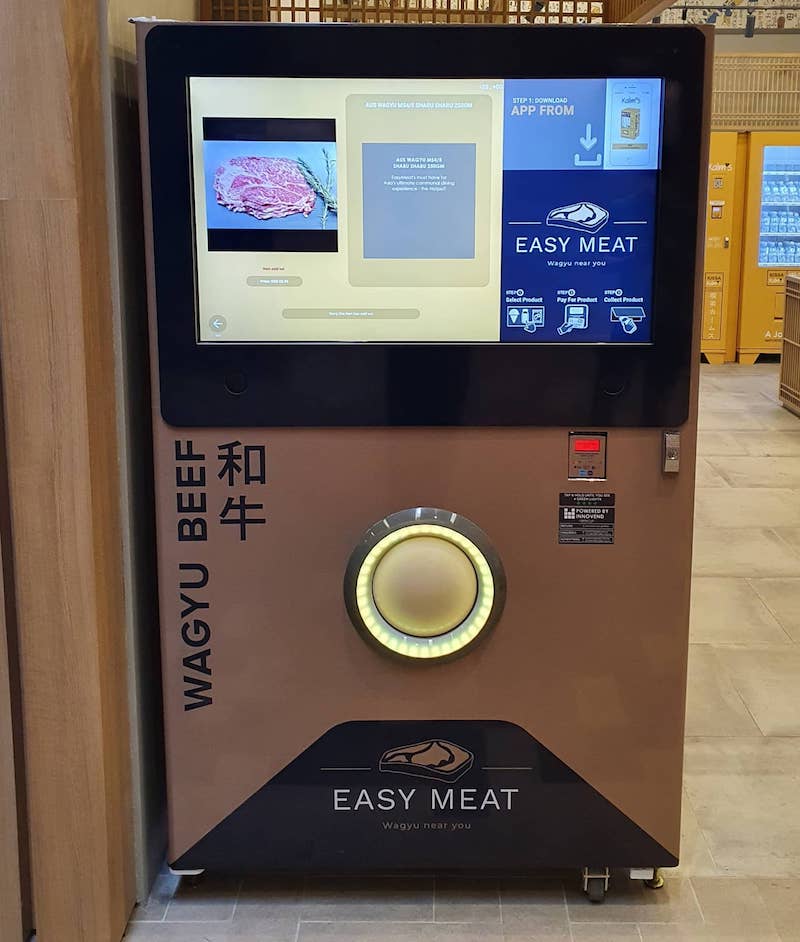
As unimaginable as it may sound, Singapore’s pursuit of automation may be reaching new heights but not necessarily in areas we would have expected. Apart from the proliferation of “fresh orange juice” vending machines, Singaporeans have been noticing more of the novelty-type vending machines appearing around the island. While bread dispensing machines are already a common sight in neighbourhoods – pretty mundane given the item’s status as a staple of our diet – machines containing raw fish seemed a tad odd.
Yet there are over a hundred Norwegian salmon dispensing machines around Singapore, and the number is expected to only increase – up to 900, in fact. Beyond the initial bewilderment surrounding the concept, this sudden emergence promises to only trend upwards in the years to come. After all, vending machines are the exact type of retailer we need in these times.
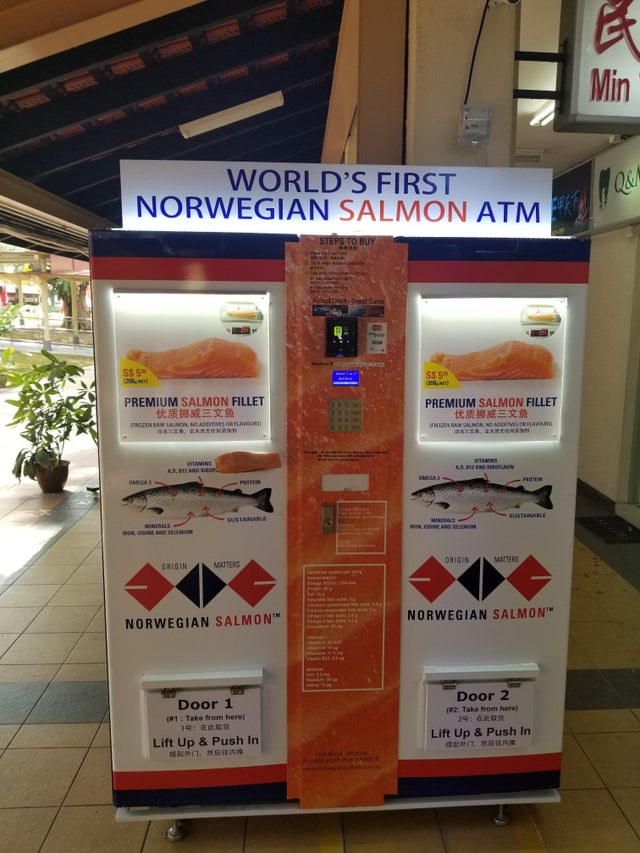
“It’s 24/7, contactless, safe to buy, safe to eat. No need to go to any superstore. Social distancing is there. In six seconds, you get your product. You go,” says Mr Manish Kumar, the managing director of Norwegian Salmon.
The option of vending machines offers Manish the luxury of his own retail space, allowing him to operate without the concern of having to compete with retailers offering fresh salmon. And this radical evolution of the vending machine is only reaching new heights.
Nestled in the hearts of select estates are wagyu beef dispensing vending machines by EasyMeat. Promising who want to “make it super easy for us to get Wagyu treats that are at the sweet spot of price, quality and convenience”. EasyMeat certainly seems to be the pinnacle of uncooked delicacies one can expect at the drop of a coin (or a couple of notes).
Mr Mervin Tham, one of the three founders of EasyMeat, has a theory as to why this vending machine trend has taken off and will only continue growing. “It’s a low effort way of testing a product, especially if you’re starting a business of your own. And generally there’s some interest towards the automated retail culture that you see overseas, like in Japan,” he says.
EasyMeat vending machines are available at four different locations but it remains to be seen if this option will prove popular enough to see more machines sprouting up across the country like its orange juice counterpart.
Chilli crab, and why not?
As hard to believe as some of these options may seem, the true stretch of the Singaporean imagination is tested by vending machines dispensing the local delicacy chilli crab!
Not only is one challenged to imagine the quality and flavour of the dish but also the sheer logistics of containing and preserving the usually monstrous serving.
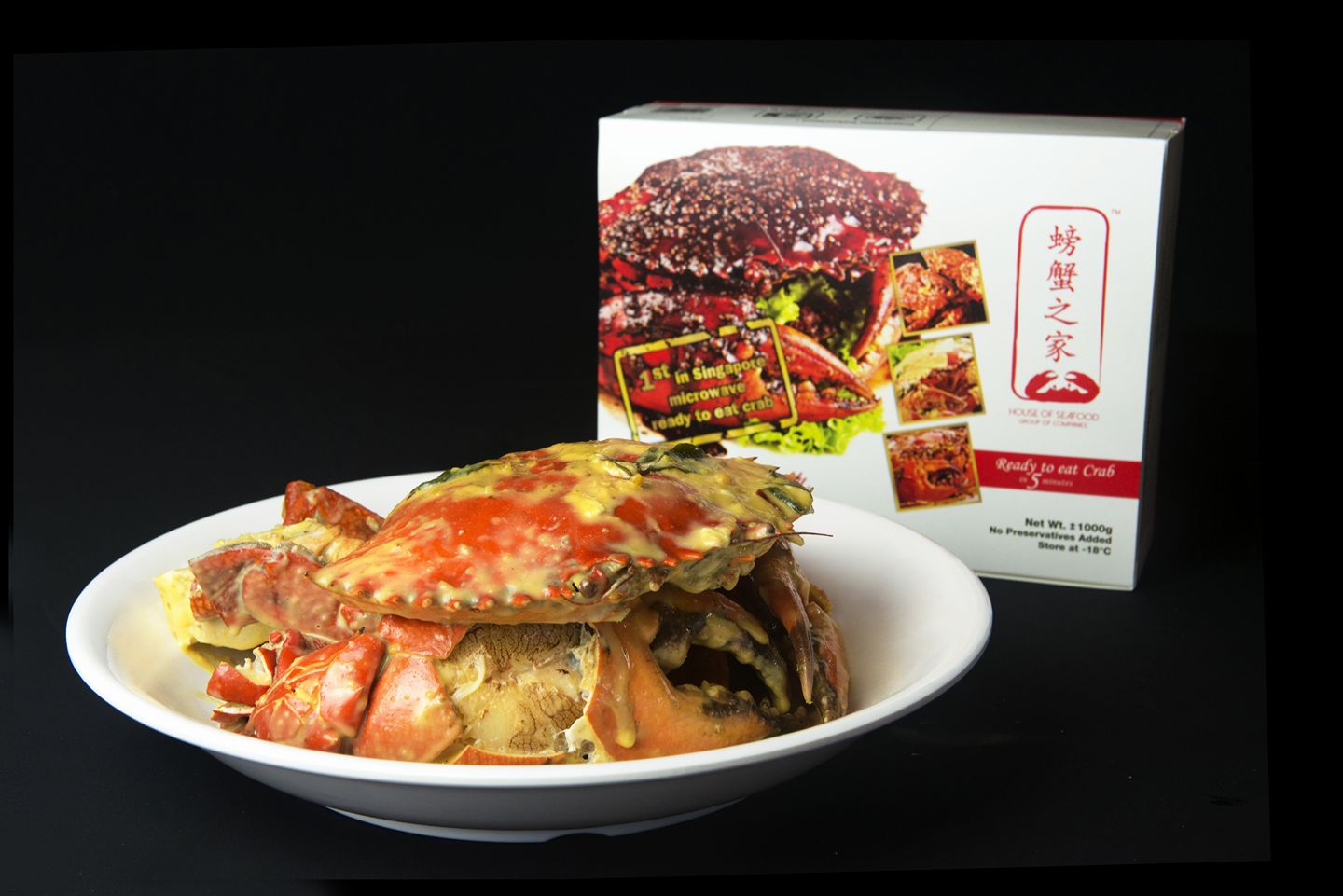
As ridiculous as these options may seem, our local fare of vending machines still pale in comparison to the seemingly outrageous offerings in Japan. From the mundane like umbrellas and cow milk, to the eyebrow-raising contraceptives and Buddhist charms, to the outright baffling human milk and underwear… both new and used – it seems like vending machines in Japan are a retail paradise in their own right.
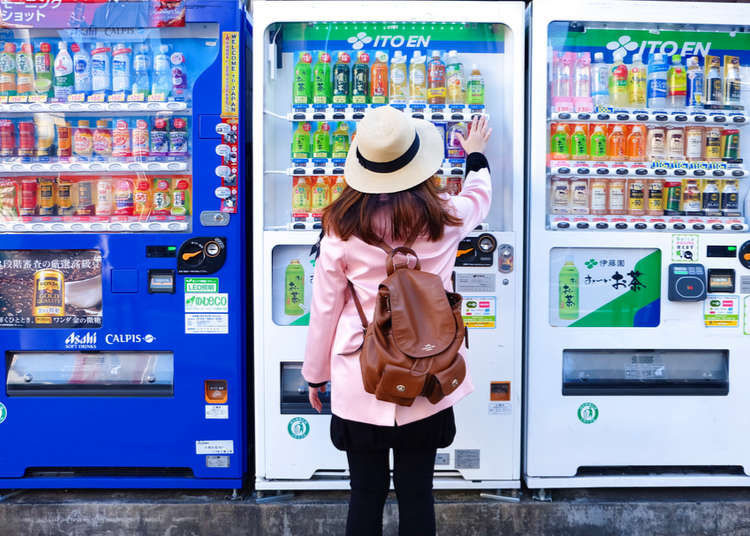
Which begs one to wonder what the future of retail may look like in the face of these automated retail trends, especially given the ongoing and seemingly unending age of social distancing. The impact of vending machines looks to have been largely positive, after all, it has allowed for the likes of Temasek Holdings to dispense much sought after face masks over 1,200 vending machines island-wide.
However, there does remain a concern regarding the future of brick and mortar retail. While it would still be a reach to assume that vending machines could replace grocery stores, a suitably varied collection of them could quite easily replace any 24-hour convenience mart.
Will the impact of the rapidly growing trend see the decline of traditional retail outlets before the end of this pandemic? Or will these diverse vending machines turn out to be a fad which will be easily dispensed with once the need for social distancing subsides?
Join the conversations on THG’s Facebook and Instagram, and get the latest updates via Telegram.



